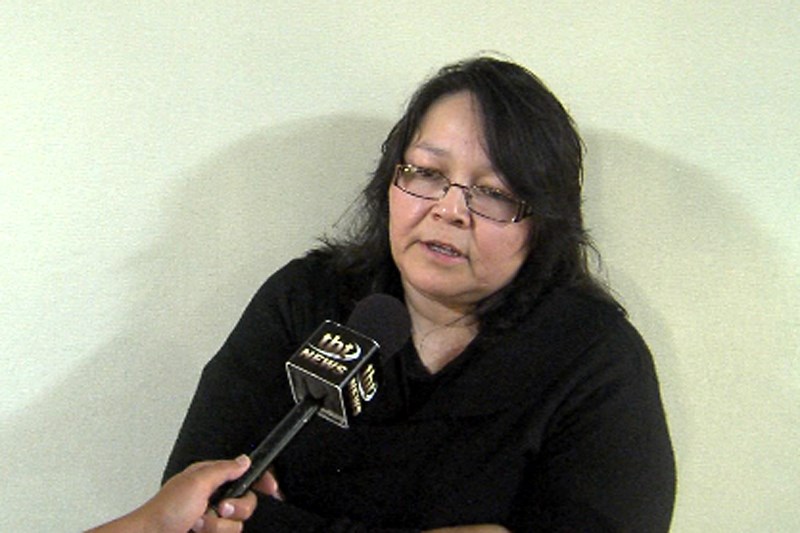THUNDER BAY -- A human rights tribunal in Thunder Bay heard Wednesday that Sandy Lake First Nation has the right as a sovereign nation to exercise its cultural and legal traditions, and that one of the customary laws is the ability to remove visitors who disrespect those longstanding practices.
The tribunal is hearing evidence concerning a complaint by a former resident of Sandy Lake—a fly-in community 600 kilometres north of Thunder Bay—that she was discriminated against when she was kicked out in August of 2012.
The First Nation's lawyer, Asha James of Falconers LLP, says the eviction was not for any discriminatory reason, "but rather due to community unrest and some social media postings that were angering community members, so out of concern for her safety and the safety of community members and to ensure the tension in the community did not escalate."
Angele Kamalatisit, originally from Fort Albany First Nation, had been living at Sandy Lake for a number of years with her common-law husband.
At this week's hearing before the Canadian Human Rights Tribunal, she's seeking financial compensation for pain and suffering.
Kamalatisit says Nishnawbe-Aski Police Service officers accompanied the Chief and council members when they arrived at the couple's home to enforce the eviction order.
She maintains she was told to leave in retribution for her husband's political views. "We didn't commit no crimes. It wasn't right. We were just scapegoats for stating a political position...because of my common-law's involvement in their politics."
Kamalatisit said her partner was causing problems for the council by speaking up about finances and other issues, and demanding their resignation. Her husband, she said, had also been told he was ineligible to run for office himself because he was in a common-law relationship.
According to Kamalatisit, she wasn't personally interested in the politics, and didn't get involved. "I'm not from there and I understand that it's none of my business as a member of another First Nation."
James, however, said Kamalatisit was involved in Facebook commentary with negative remarks about the Chief and council, personal attacks about their lifestyle, and allegations that they had behaved improperly.
"Those were the issues that were upsetting to community members, who felt there was a lack of respect for Chief and council."
The lawyer said most First Nation band councils, including Sandy Lake's, are accustomed to some people being unhappy with election results, and that was not a factor in their decision to ask Kamalatisit to leave. Rather, she said, "It had to do specifically with her own actions and her own words, and an increasing level of tension in the community regarding her statements."
First Nations' communities were included in the provisions of the Canadian Human Rights Act about six years ago.
In an interview with Tbnewswatch.com, James suggested this case will likely be in the forefront in setting out what Chiefs and councils are allowed to do, and "how the human rights tribunal will recognize and balance a nation's traditional laws and cultural practices with ensuring protection for individuals under the human rights code."
